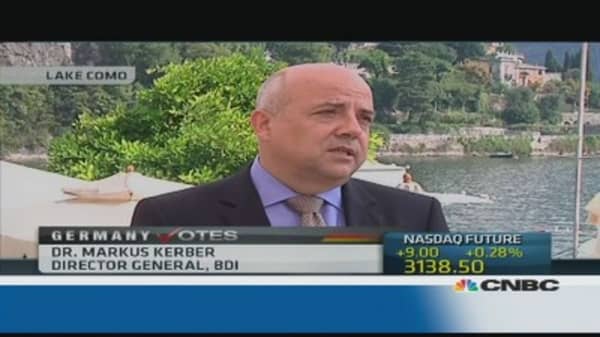It has become something of a cliché to argue that no real decisions will be taken which affect the unfolding of the euro zone debt crisis until after the German election in September, but this may be a red herring.
Without improved demand, the stock market rally which has followed the euro zone's return to growth could be based on a false premise, analysts warned.
"There is the problem of effectively no demand in the global economy because most of the demand was debt-driven," Satyajit Das, author of "Extreme Money" and a well-known pessimist about the recovery, told CNBC.
(Read more: ECB may have to cut rates: Bini-Smaghi)
"The rally is driven by three things: faith in the austerity package; the ECB's (European Central Bank) magnificently empty statement about doing whatever it takes; and third, the banking union, which stabilized the banking sector, except the Germans have just taken the guts out of that. These three things have all gone."





